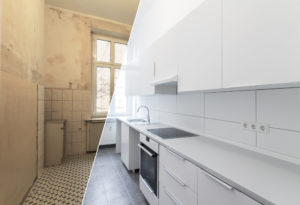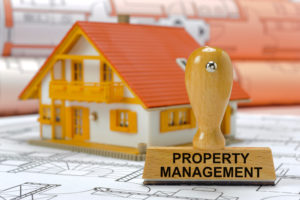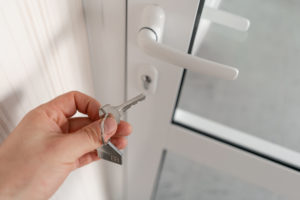What Are the Benefits of Using a Property Management Company?
 As a property owner, there are several things involved in managing your property to keep it profitable. If you try to do this on your own, you can end up spending more time than you expected on the daily management of your rental units.
As a property owner, there are several things involved in managing your property to keep it profitable. If you try to do this on your own, you can end up spending more time than you expected on the daily management of your rental units.
You will enjoy greater peace of mind and many more benefits when you hire a property management firm to help you.
Get Better Tenants
A property management company will have the infrastructure in place to vet applicants for any vacant unit you have available. (more…)


 While owning a rental property can be a great investment, it doesn’t come without its share of responsibility. Hiring a professional maintenance service can help you keep up with the repairs and updates your property needs. Some of the benefits include:
While owning a rental property can be a great investment, it doesn’t come without its share of responsibility. Hiring a professional maintenance service can help you keep up with the repairs and updates your property needs. Some of the benefits include: As a property owner, building care and upkeep can eat into your profits. But, don’t worry, as there are simple, cost-effective methods to keep your property looking its best, while also increasing your rental revenue. Let’s look at the top upgrades that your tenants, and your wallet, will love:
As a property owner, building care and upkeep can eat into your profits. But, don’t worry, as there are simple, cost-effective methods to keep your property looking its best, while also increasing your rental revenue. Let’s look at the top upgrades that your tenants, and your wallet, will love: Around two-thirds of Americans prefer to be homeowners rather than renters. Although most people consider renting to be a stepping stone to purchasing a house, there are a number of advantages to renting that make it a far better option than buying!
Around two-thirds of Americans prefer to be homeowners rather than renters. Although most people consider renting to be a stepping stone to purchasing a house, there are a number of advantages to renting that make it a far better option than buying! Renting through a property management company is a great idea for many reasons. There are similarities and differences between landlords and property management companies, so it can be helpful to know why so many people prefer renting through a neutral, third-party property management service.
Renting through a property management company is a great idea for many reasons. There are similarities and differences between landlords and property management companies, so it can be helpful to know why so many people prefer renting through a neutral, third-party property management service. There is a lot to do any time you need to get your property rent-ready, from cleaning to repairing to marketing and showing.
There is a lot to do any time you need to get your property rent-ready, from cleaning to repairing to marketing and showing.  With the shifts in the rental market over the past few months, property owners and landlords across the country are faced with a decision: should they raise monthly rental rates for their tenants?
With the shifts in the rental market over the past few months, property owners and landlords across the country are faced with a decision: should they raise monthly rental rates for their tenants? A happy tenant is a good tenant who makes payments on time, treats the property with respect, and communicates when there is a problem.
A happy tenant is a good tenant who makes payments on time, treats the property with respect, and communicates when there is a problem.  When a property is under contract as a rental, both the tenants and the landlord have specific legal rights. A tenant has a right to privacy, but at the same time, a landlord (or their
When a property is under contract as a rental, both the tenants and the landlord have specific legal rights. A tenant has a right to privacy, but at the same time, a landlord (or their  Most landlords will agree that inspecting your rental property one to three times each year is acceptable. Some landlords only do this three times during a lease: at move-in, within six months after a move-in, and then again when tenants move out.
Most landlords will agree that inspecting your rental property one to three times each year is acceptable. Some landlords only do this three times during a lease: at move-in, within six months after a move-in, and then again when tenants move out.